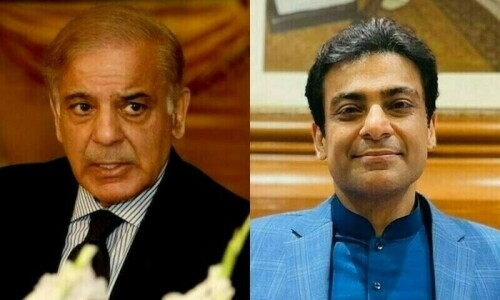After a seven-year hiatus, the pride of Pakistan Day parade returned to the nation this week. Usually, grand military parades are meant to display a nation’s prowess to friends and foes alike. Since ours was held in the midst of a maelstrom, with military and paramilitary forces fighting militants and criminals, the event called for extra security measures. So pain preceded for some citizens before the pride came on March 23.
Read: Pakistan holds first Republic Day parade in seven years
A security blanket that the army threw around the new parade ground at picturesque Rose and Jasmine Garden of Islamabad put the surrounding populations, and visitors to the city, at discomfort. Intermittent digital blackouts cut off cellular services to such localities as Faizabad, Rawal Town, Margalla Town, Chak Shehzad and G and I residential sectors of Islamabad to the chagrin of all callers.
With signals going down too often, the common mode of communication remained a constant worry for good ten days. Aun Mohammad, a resident of Margalla Town, had no quarrels with the parade but said he had to drive – through circuitous routes – to places of strong signals to make important phone calls.
“It was too problematic for me, as it must have been for others,” he said.
A few found the money spent on preparing the new parade ground and on the extraordinary security “wastage” and some took it as “inviting danger unnecessarily”. Seeing soldiers and armed police everywhere, guarding the periphery of the parade ground and manning barriers and checkpoints, women particularly felt nervous and restricted their movements.
“Of course, with so many armed law enforcers moving around and the thought of mindless militants out for them would one fearful and cautious. I preferred to stay at home rather than venture out unnecessarily,” said Ms Hafsa, a resident of I-8/3.
But she understood the need for tight security. “May be our civilian and military leadership should have waited for one more year to hold this parade to celebrate victory in the decisive war they have launched against the militants,” she said. “Whatever the cost, every success (in countering terrorism) would make the country so much safer.”
Ms Hafsa reflected the general enthusiasm that surrounded the military parade which also showcased the latest weapon in hunting down the terrorists in their hideouts – indigenously produced armed drones.
Although a large number of people wanted to watch and cheer the parade, security concerns allowed a limited gathering at the event.
Frequent checking of vehicles plying on the nearby roads also discouraged the more enthusiastic.
For many political analysts the parade was a much needed morale booster for the nation. “If we don’t rise up to celebrate such events of national importance, how can we hope to convince the outside world that Pakistan is safe for investment etc,” remarked a veteran journalist,
There were critics also. They argued the country cannot afford such celebrations when people are being killed in bomb blasts right in the heart of major cities. “Unfortunately, the county is going through a lot that doesn’t allow us to be in celebratory mood,” commented a former federal secretary, who had served at important positions.
Then there were those who mourned the devastation that the construction of the parade ground brought to the fauna and flora of the Rose and Jasmine Garden.
Environmentalists, who have warned that the construction activities of the Capital Development Authority, and more so of the private sector, is depleting the underground water and denuding Islamabad, once known for its lush green look.
Published in Dawn, March 27th, 2015
On a mobile phone? Get the Dawn Mobile App: Apple Store | Google Play











































